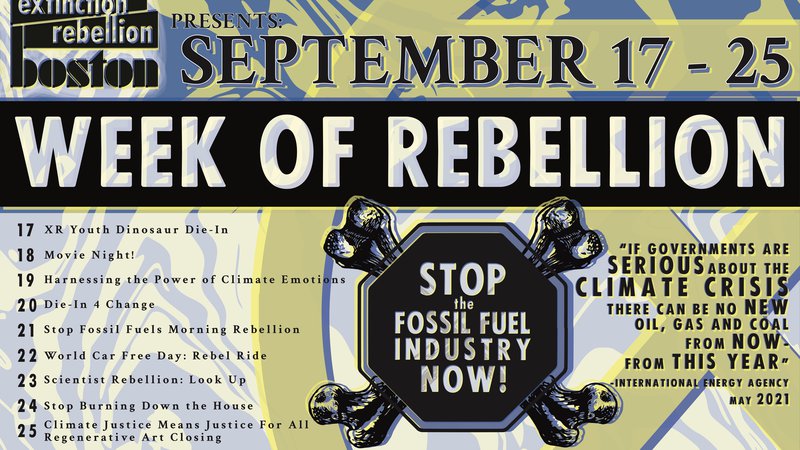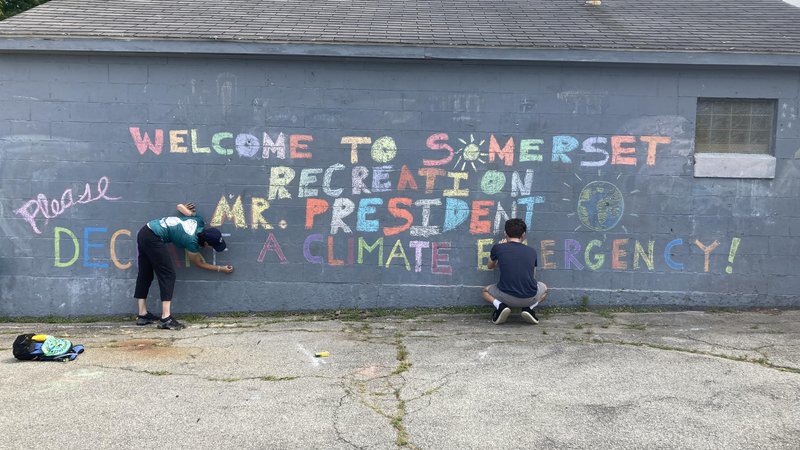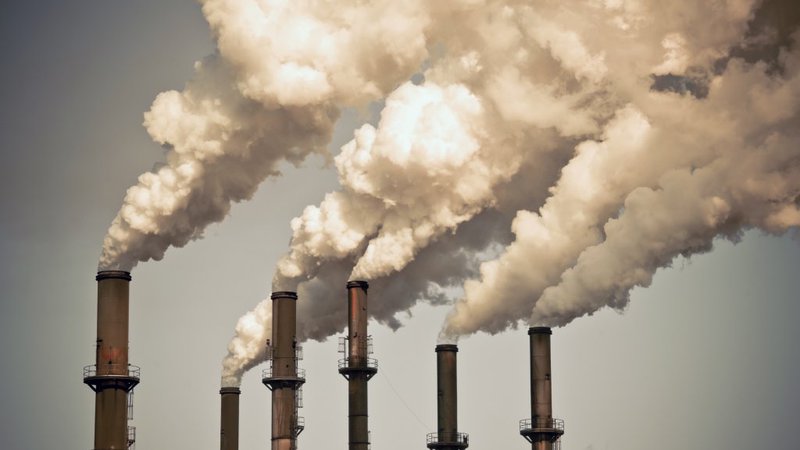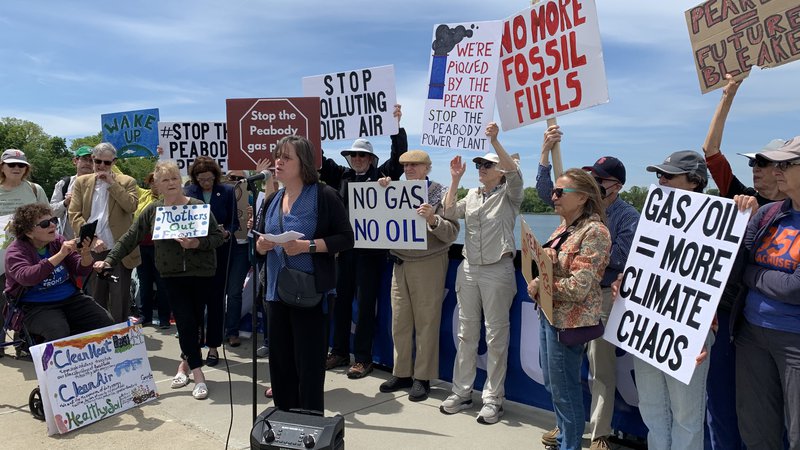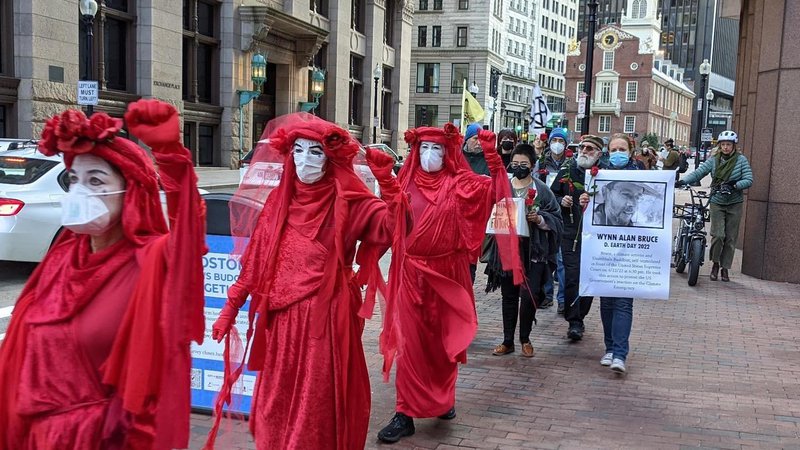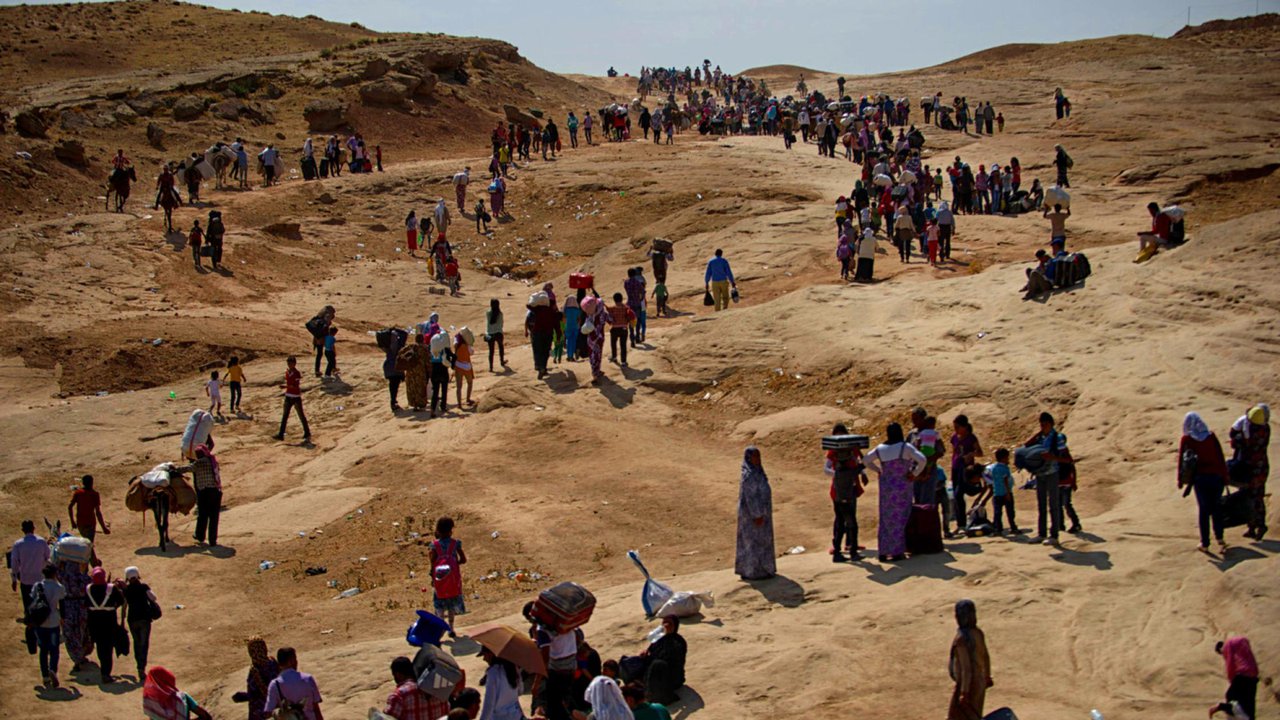
Mass climate migration has begun
Recent research revealed that 19 percent of Earth's land could be uninhabitable by 2070. Heat waves, rising sea levels, and extended droughts, the consequences of human-induced global heating, are going to displace hundreds of millions of people, especially in sub-Saharan Africa, South Asia and Latin America. There could be up to 1 billion climate migrants by 2050. Migrations of such large numbers will exacerbate conflicts over water and other resources, and overwhelm country borders.
Lowering emissions would help curb mass climate migrations by mitigating heat waves, extended droughts, and extreme storms and floods, ensuring that crops can successfully grow, but it won't stop climate migration completely. Flexible immigration policies will become necessary to help children and families struggling to survive.
Read below for more information:
NY Times, "The Great Climate Migration"
"For most of human history, people have lived within a surprisingly narrow range of temperatures, in the places where the climate supported abundant food production. But as the planet warms, that band is suddenly shifting north. According to a pathbreaking recent study in the journal Proceedings of the National Academy of Sciences, the planet could see a greater temperature increase in the next 50 years than it did in the last 6,000 years combined.
By 2070, the kind of extremely hot zones, like in the Sahara, that now cover less than 1 percent of the earth’s land surface could cover nearly a fifth of the land, potentially placing one of every three people alive outside the climate niche where humans have thrived for thousands of years. Many will dig in, suffering through heat, hunger and political chaos, but others will be forced to move on. A 2017 study in Science Advances found that by 2100, temperatures could rise to the point that just going outside for a few hours in some places, including parts of India and Eastern China, “will result in death even for the fittest of humans.'"
Check Out the methodology on this recent report from the NY Times and ProPublica.
Rollng Stone, "Are We Thinking About Climate Migration All Wrong?"
"By 2050, the panelist says, we could have close to a billion climate refugees. The speaker is not alone in this conjecture. The United Nations International Organization for Migration has also cited the gobsmacking one-billion-by-2050 figure. In 2017, Cornell University researchers estimated it could be 1.4 billion by 2060, and 2 billion by 2100..
But the hyperfocus by the media and well-meaning advocates on nailing down a global number of climate refugees by a specific calendar year can be problematic, conjuring images of apocalyptic invasions and fanning the flames of nationalism and xenophobia already spreading across the globe. And while these splashy predictions have a shock value that can galvanize action, they ignore nuances that could better serve public discussion and policy — like the fact that the majority of climate migrants move within their own countries, often slowly over time, and usually not very far.
Advocates, academics, and international bodies alike agree that most climate migrants move within their own countries. There are well-known U.S. examples: the coastal Louisianans termed the “first American climate refugees,” fleeing rising seas; the indigenous Alaskan villages seeking funding to relocate inland. But this phenomenon is unfolding in every corner of the U.S., and around the world..
Internal climate migrants like the man in Cotonou often find themselves in places that are just as dangerous and vulnerable as those they leave behind. “If you live in a rural area and you move to a coastal mega-city, you might be leaving drought and running right into flood,” Zickgraf explains."
Reuters, "Climate woes growing for women, hit worst by displacement and migration"
"From sexual violence in displacement camps to extra farm work and greater risk of illness, women shoulder a bigger burden from worsening extreme weather and other climate pressures pushing people to move for survival, a global aid group said on Tuesday. Scientists expect forced displacement to be one of the most common and damaging effects on vulnerable people if global warming is not limited to an internationally agreed aim of 1.5 degrees Celsius, CARE International noted in a new report.
“This report shows us that climate change exacerbates existing gender inequalities, with women displaced on the frontlines of its impacts bearing the heaviest consequences,” said CARE Secretary General Sofia Sprechmann Sineiro.
For example, women and girls uprooted by Cyclone Idai, which hit Mozambique, Zimbabwe and Malawi in 2019, are still facing serious health threats due to poor access to basic services and sanitary products, the report said. And in Ethiopia, where about 200,000 people were forced from their homes last year by drought and floods, women living in overcrowded shelters face higher levels of sexual violence there and on longer, more frequent trips to fetch water and firewood."
"If global warming continues unchecked, the heat that's coming later this century in some parts of the world will bring "nearly unlivable" conditions for up to 3 billion people, a study released Monday said. The authors predict that by 2070, much of the world's population is likely to live in climate conditions that are "warmer than conditions deemed suitable for human life to flourish."
The study warned that unless greenhouse gas emissions are curtailed, average annual temperatures will rise beyond the climate "niche" in which humans have thrived for 6,000 years. That "niche" is equivalent to average yearly temperatures of roughly 52 to 59 Fahrenheit. The researchers found that people, despite all forms of innovations and migrations, have mostly lived in these climate conditions for several thousand years.
"We show that in a business-as-usual climate change scenario, the geographical position of this temperature niche is projected to shift more over the coming 50 years than it has moved (in the past 6,000 years)," the study warned. These brutally hot climate conditions are currently experienced by just 0.8% of the global land surface, mostly in the hottest parts of the Sahara Desert, but by 2070 the conditions could spread to 19% of the Earth’s land area.
Without climate mitigation or migration, by 2070 a substantial part of humanity will be exposed to average annual temperatures warmer than nearly anywhere today, the study said. These brutally hot climate conditions are currently experienced by just 0.8% of the global land surface, mostly in the hottest parts of the Sahara Desert, but by 2070 the conditions could spread to 19% of the Earth’s land area."
The Guardian, "'We're moving to higher ground': America's era of climate mass migration is here"
"This enormous migration will probably take place over a longer period than the Dustbowl but its implications are both profound and opaque. It will plunge the US into an utterly alien reality. “It is very difficult to model human behaviour under such extreme and historically unprecedented circumstances,” Keenan admits.
The closest analogue could be the Great Migration – a period spanning a large chunk of the 20th century when about 6 million black people departed the Jim Crow south for cities in the north, midwest and west.
By the end of this century, sea level rise alone could displace 13 million people, according to one study, including 6 million in Florida. States including Louisiana, California, New York and New Jersey will also have to grapple with hordes of residents seeking dry ground."
More Information
Related Stories:
Featured:
-
The third annual Week of Rebellion is full of opportunities for celebration and action!
-
Our government had the opportunity to finally turn our state into a "climate leader," and they decided yet again to prioritize profits and political posturing over the well-being of residents.
-
Prominent climate scientists and activists demand immediate climate action in the United States.
-
Stop the Fossil Fuel Industry, Now: List of events for Extinction Rebellion Boston's September week of rebellion
-
A compilation of books, movies, articles, and ways to take action to protect Black lives
-
Nadia Colburn, PhD and member of Extinction Rebellion Media team, discusses how to talk about the climate and ecological crisis with family and friends.
Upcoming Events:
-
Sat Feb 28th @ 10 a.m.
-
Sat Feb 28th @ noon
-
Sat Feb 28th @ 2:30 p.m.

